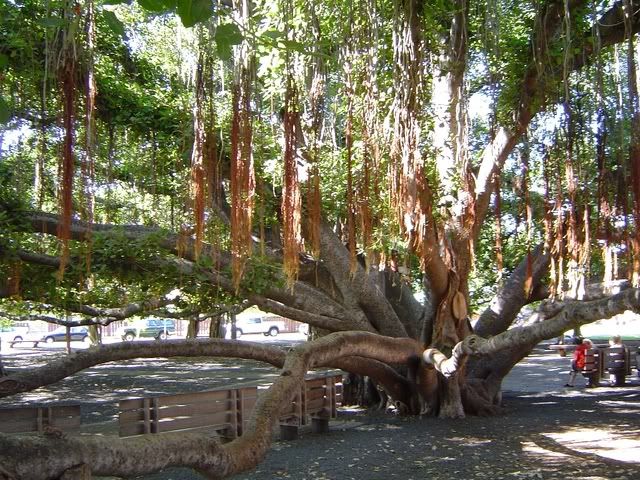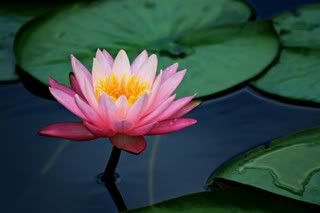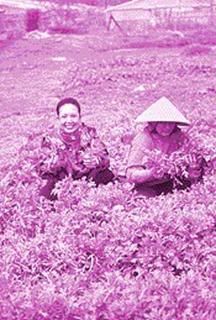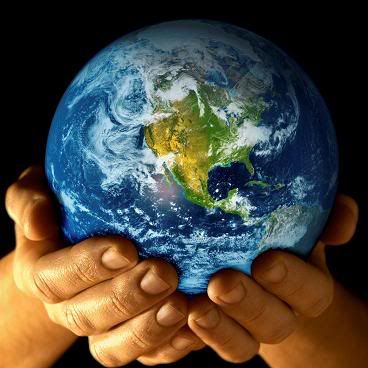(6:00PM EST – promoted by Nightprowlkitty)
Series 2010 …
May 13: “This Could Ruin Our Summer”
May 6: Hair Today Gone Tomorrow
April 29: The Island Who Decides
April 22 (Earth Day): Mother Honor
April 14: Meta Nina
OFF THE WALL: Im willing to make a commitment to a weekly Essay every Thursday, however I can’t promise I’ll stay “on topic”, so it’ll be open-ended. I have a definite tendency to wander off and go on tangents (in case you haven’t noticed!). Sometimes, my thinking, and subsequent remarks, leapfrog and may seem like they are just Off The Wall. I’ll try to leave a trail in here. If I can stay on track for a while, my hope is to broaden, enlighten, and embrace my own, and yours, world view through review of world cultures and crises. (and maybe Ill learn to text wrap too. lol)
So. Here we go. heh.

My spark this week was from a great phone conversation with Diane G and we somehow got onto a topic of diversity, multi-cultural, etc. I forget how we even got started on that. But it made me realize that my life experiences have been anything but homogenious or culturally boring.
This subject, world cultures, is something that you could write about every week for a year and still not cover it. It’s …. complicated. Even just with a normal-ish approach. However, you will not get a normal-ish approach to it from me!
For some inexplicable reason, I’ve always had a fascination with world cultures and variations of the human theme. It hits me from several angles. It’s fascinating, really. Then it morphs and extends into areas of human rights & justice, then global stuff, then ya know enlightenment and One Love and all that! (lol Pinky & the Brain: “And Tomorrow, Conquer the Worrrrrld!”) So, I’ll just see how this takes shape.
Aside from my B.A. in Cultural Anthropology, I mostly tap in to my personal experiences when I get into this arena. The degree thing, well, I’m not much of an academic and my poor Advisor had to constantly nudge me to take more on Theory. Poor guy.
I grew up in the 60’s & 70’s in neo-Miami, alongside a sizeable population* of Cuban refugees. (*approx 400,000 from 1960-1974) Strange city to grow up in. In some ways, a suburb of New York, but truly quite unique. Tourist town. From there, a whole life’s worth of experiences. limited geographically but broad in other ways. Most notably, a year or so working in a refugee services agency (RSA) in 1992, grant-funded, unbelieveably challenging and an incredibly enriching time for me. Humbling. Profoundly humbling.
Most definitely not the first, but certainly the most profound “cross-cultural” experience was my interactions and friendships with a particular few Cambodian-Americans back in ’92. They stole won my heart. In my recent google-hunt, I came across this post which makes a statement that I’ve felt … in my bones … for some years, but was never able to articulate as well as this woman does here. She cuts to the quick. This goes to the core of my activism.
“I have known what it is like to live in relative paradise, and I have also known what it must be like to live in hell,” she says. “All that is precious to a Cambodian, our culture, our tradition, our ancient history, was almost lost forever at the hands of the Khmer Rouge. I saw innocence itself die, along with millions of innocent people who committed no crime but to be alive and in the path of a genocidal movement.
“As a Cambodian-American I have learned the importance and the value of freedom, that it must be protected and cherished, and never taken for granted. When your freedom is lost, the soul dies, the body is but a hollow vessel. Cambodia and its most precious resource, her people, were brought down to absolute emptiness by what transpired between 1975 and 1979. I pray that we, the Khmer-Americans, can help fill the reservoir of the soul of our homeland, with the essence of freedom, wisdom from the past, and hope for the future.”
Often, the proclamation “Never again,” is associated with the Nazi holocaust. The Cambodian holocaust was the test of the world’s committment to “Never again.” The free world failed the test, and the Cambodian people paid, and continue to pay the price to this very day. Listen to the Cambodian survivors, and to the echoes of the killing fields. ~Salatha Mok
.

If you’re interested in an overview of the Cambodian Story, there’s a very good article here.
The phrase that echoes in my mind from a woman here that I knew (and love) personally, Yani…. she was able to flee Phnom Penh before the fall. In a hurry. Thinking it would blow over and in a matter of weeks she could return. “I didn’t even take my checkbook!” she would often say, laughing. A beautifully written piece about her and her story is here.
“Before I left, I went to see the president and told him that I have to leave and to be careful, it’s dangerous,” Yani says of the last time she saw her friends and family. “I stop by my mother’s and tell her I’m going to be gone a few days, because I used to go to Bangkok all the time.”
When they arrived in Thailand, Yani continued to Paris to join the three oldest children. But Saoroth {her husband} loved his country too much; he wanted to return. (“I couldn’t leave my office like that,” he says.) The prime minister, who had been abroad at meetings, met Saoroth at the Cambodian embassy in Bangkok. Let us all go back, he had said. The communists meant to improve the country. “That’s what everybody think,” Yani says. “They thought it would be better. A lot of people were killed. Most of them were innocent.”
But Saoroth did not have his passport, having left in such a hurry, and on a private jet. Another official warned that he would be detained at the airport without a passport. In the time they discussed this, the prime minister left without him. When the plane landed in Cambodia, the Khmer Rouge killed everyone on board. “I thought he was on it,” Yani says. “I didn’t know until five months later when I found out he was alive — in Houston.”
Yani didn’t even know where Houston was.
{snip}
In all the years she cared for others Yani heard no news of the family she had left behind in Cambodia: her mother, three brothers, sister, nieces, nephews and two brothers-in-law.
In 1991 the Keo family returned to their homeland for the first time since they had left, attending a conference in Malaysia on rebuilding. “Seventeen years later we go back and find out all of them were killed,” Yani says. “We don’t know where; we don’t know how.” The country had deteriorated so much, it was unrecognizable to her. “I was lost. It was very dirty. We couldn’t find our home. Everything had completely changed.
“It was very sad. I never thought they can kill everyone in my whole family like that. Not one alive.”

“You only have one life to live,” she says.
“Why you need to hate each other?” ~Yani Rose Keo
I can tell you, in terms of legalities and international law and all, it’s really complex. I’ll try to sneek some of that in as I go along. When I first came on board in the RSA job, I was clueless what is the difference between refugee and immigrant. It’s a huge difference. In a way, it comes down to “choice”. I don’t know. Were my Irish ancestors “immigrants” (vs. “refugees”) when they departed their homeland during the Potato famine years? Legally, I suppose so. That was then. This is now.
For starters… let’s look at this “refugee versus immigrant” thing:
As defined in the 1951 United Nations Convention Relating to the Status of Refugees (the Refugee Convention), a refugee is defined as a person who
“owing to a well-founded fear of being persecuted for reasons of race, religion, nationality, membership of a particular social group or political opinion, is outside the country of his nationality, and is unable to or, owing to such fear, is unwilling to avail himself of the protection of that country or return there because there is a fear of persecution…”
While the definition in the Refugee Convention has been used by international organizations such as the United Nations, the term continues to be misunderstood and is often used inconsistently in every day language. Media stories, for example, often confuse refugees with people migrating for economic reasons (“economic migrants”) and persecuted groups who remain within their own country and don’t cross an international border (“internally displaced persons”).
The reasons for persecution must be because of one of the five grounds listed in article 1 A(2) of the Refugee Convention: race, religion, nationality, membership of a particular social group or political opinion. Persecution based on any other ground will not be considered.
For a more in depth view on some of these distinctions, read Human Rights Education Association website. The impact and political entanglements are mind numbing. How, or who, makes these decisions of whether or not to grant asylum, or refugee status (legally) is … deep. I dont do political wonky stuff, but I sure do ask questions. Why did 1960 Castro regime refugees get so much aid from us while Haitians are left out in the cold. I dont know (although I have an idea).
And what protection or aid does one have even once awarded such status?
Definitions come into play when countries and organizations attempt to determine who is and who is not a refugee. Asylum seekers-that is, those who are seeking refugee status in another country– normally need to establish individually that their fear of persecution is well-founded and undergo a legal procedure in which the host country decides if she or he qualifies for refugee status. However, during a mass exodus, it may not be possible for a host country to carry out individual screening. In such circumstances, particularly when civilians are fleeing for similar reasons, a ‘group’ determination of refugee status may be declared, whereby each civilian is considered a refugee, in the absence of evidence to the contrary.
International law recognizes the right to seek asylum, but does not oblige states to provide it. Nations at times offer ‘temporary protection’ when they face a sudden mass influx of people and their regular asylum systems would be overwhelmed. In such circumstances people can be speedily admitted to safe countries, but without any guarantee of permanent asylum. Thus ‘temporary protection’ is helpful to both governments and asylum seekers in specific circumstances. Yet it only complements and does not substitute for the wider protection measures offered by the Refugee Convention.
Tangent Alert! I cannot comprehend why we have Chinese Uighurs detained in shackles in Guantanamo when it seems more appropriate we should grant them asylum. I dont get it.
.
SPOTLIGHT (a current crisis): Hmong and NYT here
12/27/09. Armed with riot shields and batons, Thai military officers began early on Monday to forcibly return 4,000 Hmong asylum seekers to Laos in a lingering echo of the Vietnam War.
Hmong refugees were transported by military truck from Ban Huay Nam Khao camp in Phetchabun province northern Thailand to Laos on Monday.
A government spokesman, Panitan Wattanayagorn, said in a telephone interview that the repatriation had started and would be completed within days.
Members of a mountain tribe that aided the United States in its secret war in Laos, the asylum seekers have said they fear retribution by the Laotian government, which continues to battle a ragged insurgency of several hundred Hmong fighters.
Thailand moved ahead with the repatriation despite complaints from the United States, the United Nations, and human rights and aid groups. It was doing so although it has determined that some asylum seekers were eligible for refugee status, human rights groups said.
“This forced repatriation would place the refugees in serious danger of persecution at the hands of the Lao authorities, who to this day have not forgiven the Hmong for being dedicated allies of the United States during the Vietnam War,” Joel R. Charny, acting president of Refugees International, an advocacy group in Washington, said in a statement.
Close to 5,000 troops and security officers entered the Hmong camp at 5:30 a.m. and opened the operation by rounding up “potential troublemakers,” said Sunai Pasuk, the Thailand representative of Human Rights Watch. Reporters were not allowed inside, but there were no reports of resistance.
They were to be processed at a military headquarters, then bused across the Mekong River into Laos.
In advance of the eviction, the military removed residents’ mobile telephones and halted medical services and food provided by aid groups, apparently “to physically and mentally break their resistance to their deportation,” Mr. Sunai said.
“Such coercive, intimidating and brutal measures are clearly the opposite of the concept of ‘voluntary repatriation,’ ” he said.
Peace. Why is it so hard?


27 comments
Skip to comment form
Author
I can barely scratch the surface…
My first trip there. We went ALL over the islands. From metro manila to very rural rice paddies. Quite an experience for me. My wife is filipina, so I have been exposed to the culture here in the us at family events, etc. However to actually go there was totally different.
I got along pretty well. I’m pretty open to stuff, so i didn’t have culture shock so much as fascination. What an incredible experience. Eye opening, even though I “knew” what to expect.
Anyway, this comment has no point, but it seemed to fit here.
Couple thoughts.
How come, what for, why do we hear always about the Nazi holocaust but not the more contemporary Cambodian one.
I have been to financial meetings geared toward us “investor” types. They mention Vietnam as a source of “growth opportunities”. So I look back upon this “Cold War” I grew up in and have to ponder who “won”.
Author
my esteemed colleague and encourager!
I got a bit overwhelmed with the abundance of websites I found in the last few days, looking for more info for this. If anyone has any suggestions or questions, let me know. Im hoping to put together some future essays for this series on Haiti, more in depth Hmong, and some others. Any requests?
standing at a bus stop where there was a crowd of 20 or 30 people sort of scattered all around, and a Indian woman came to me carrying a closed kind of lumpy cloth bag after looking very intently at each person around her a little and asked me in a very British accent where the end of the “queue” was. She was from Bombay and explained to me that she’s used to very “British” formalisms like “queue” and that it’s a bit of a leftover from the colonial days in India.
So I explained for her that we don’t really do queues here and showed her how to get on a bus in Vancouver.
My first thought afterwards was to wonder how many of the crowd would have wanted her searched or arrested if she’d been in a US city. My second thought was to wish I hadn’t thought my first thought.
My remaining thoughts about my first and second thoughts have been mostly a little sadness… mixed with some anger…
…Thursday Tangents with Sally Panic! Or whatever you call it. Thanks for your commitment.
…is really nice, too (as a name). And do try to use that wonderful purple sea dragon as a logo. But maybe he’s not underwater, maybe that’s the sky.
It’s good to know about the people and cultures of the history I lived through like this essay. The people who came here and what happened to them and their families and cultures. Wars do not just end and things resume as before. If more Americans were aware of the echoes and changes they create with these insane wars on these ancient and different cultures and people, would they still be so willing to call them evil or the enemy and give their consent or indifference to the killing?
The small store on the corner was owned by a young Vietnameze couple in the late nineties. They were sweet. I bought my ciggies there and helped the woman with her English. She brought in a scrape book in of her family back in Vietnam to show me. She was the last of a family with fourteen children. It was a beautiful place she was from so much different from the photos I saw as a kid of Vietnam, which were fiery and scary. They were both so happy the day Clinton apologized to Vietnam for the war that they gave me two packs for free.
It was interesting that there lives and mine had such a intersection. My brother was a draft dodger in the late 60’s and went to Canada it was a defining moment in his life, it changed him forever and not in a good way. I think of him as a war victim a refugee. The Vietnam family on my corner were born after the war and their lives were different as was mine because of it. We are still at it creating big holes in the fabric of cultures and families we call collateral to our world scheming.
down the path to justice. But my understanding of justice also embraces beauty and the fragile nature of our miraculous existence. Your fabulous tree captures our condition very well, but the roots, hidden and well grounded connect the tree and all of us to a common
source of life.
Thanks for the great essay———-
BIG SUR TREE